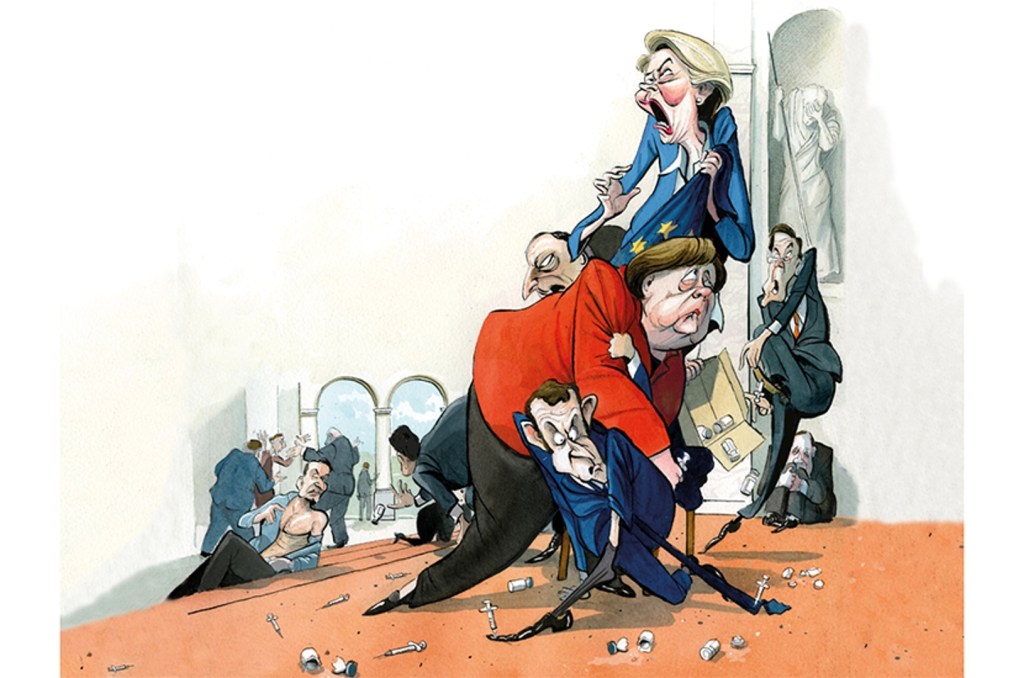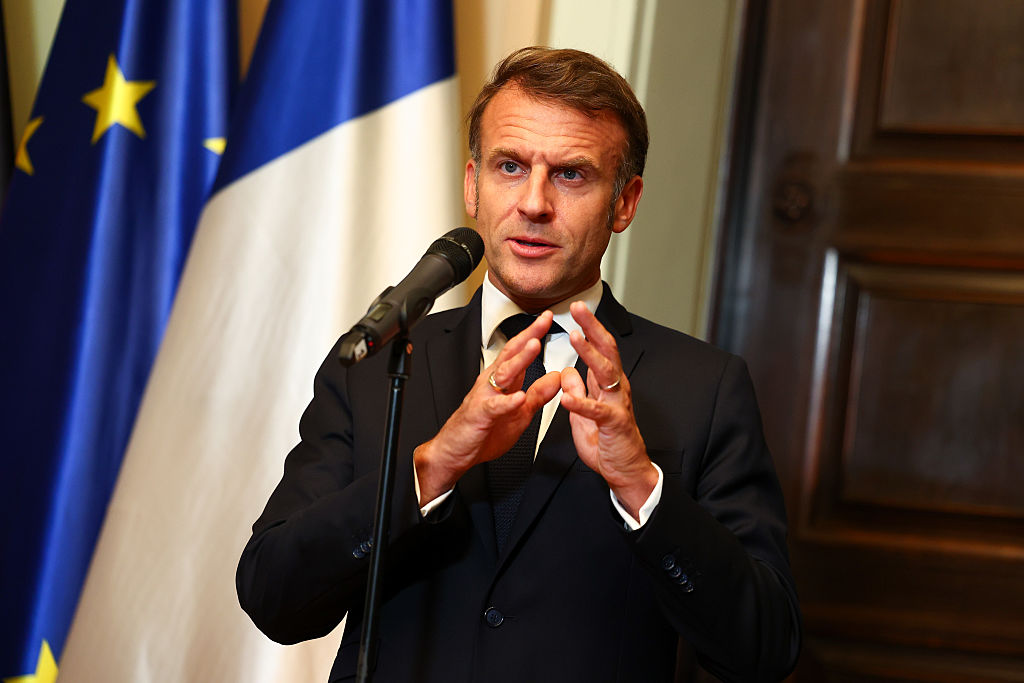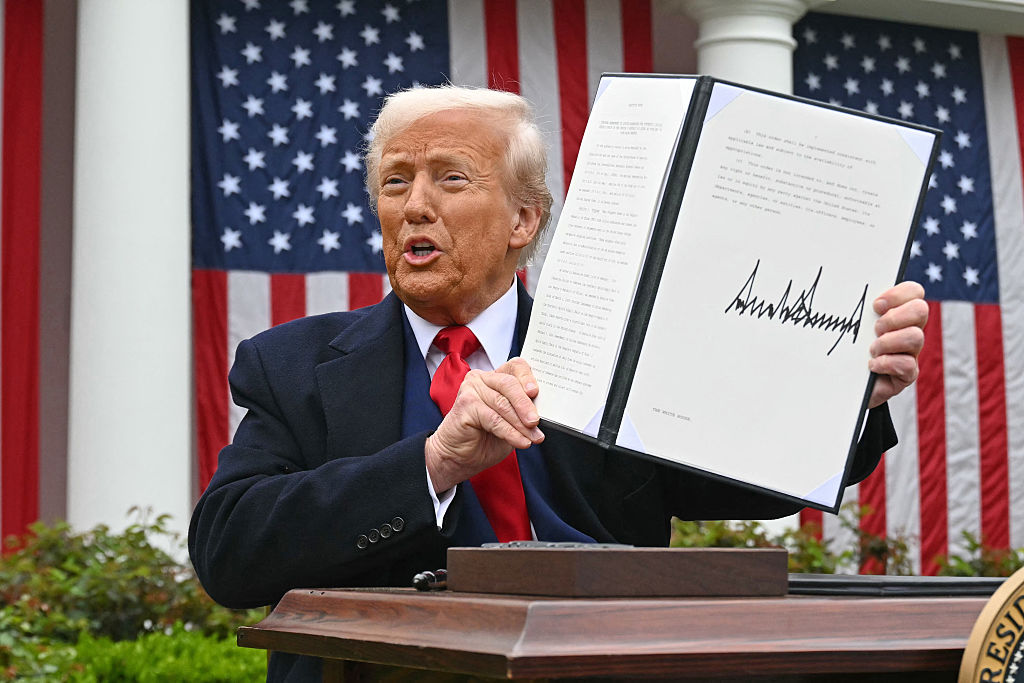The EU may boast a common currency like any other state (even if nearly a third of its 27 members do not use it). It may also have, through its regulatory jurisdiction over banks and financial services, a vast say in the running of the financial system throughout the bloc: powers at least comparable to those of a federal government such as that in Canada or Australia. But there is one thing the EU has not yet managed to get: a unified tax system.
Any attempt seriously to impinge on national tax laws still requires unanimity among member states. This irks Euro-federalists.
One reason is that it draws the center into unseemly squabbles. An embattled Greek state (corporate tax rate 24 percent), for example, complains that its best entrepreneurs relocate to Greek-speaking areas of Bulgaria (10 percent); or Germany (30 percent) angrily recounts its loss of billions when profits from online sales there magically morph into royalty payments to entities in Ireland (12.5 percent).
But the most important one is that by leaving the EU dependent for income on member states’ contributions — and a few other scraps such as a share of VAT receipts — it deprives it of an essential trapping of a federal state. The EU feels sore at its lack of power to pull the continent’s purse strings by taxing its citizens directly and directing the proceeds where it wishes.
So far national governments have politely declined to give the EU its way or surrender their right to follow their own path in this connection. However, things may be about to change.
A notable development occurred last week. The agreement at the G7 about a tax on digital sales and a minimum 15 percent rate of corporate tax was music to the EU’s ears. Brussels has suggested that it wants the former to go directly to it; it also hinted that, in the medium term, it has contemplated taking a share of the latter too. It’s too early to make reliable predictions, but this is a significant move (on which more below).
But these matters are small beer compared to the COVID recovery package agreed last year and recently signed off by all the EU’s remaining 27 member states (following a brief hitch when the German constitutional court temporarily barred Berlin from agreeing to it, only to change its mind a month later for largely technical reasons).
At first sight, this scheme looks innocuous, if monumental. The essence of it is that the EU gains the power to borrow up to €750 billion ($893 billion) in the market by issuing long-term bonds, and then generously distribute the proceeds to its member states in order to alleviate the effects of the contagion. However, there is more to this than meets the eye.
For one thing, while the EU is technically the borrower, it is, of course, taxpayers in its member states who will have to stump up for the repayments. Not for nothing are people dubbing this the EU’s Hamilton moment, after Alexander Hamilton’s successful campaign as treasury secretary of the new United States to have the national government adopt states’ debts arising from the War of Independence.
The whole exercise is financed by an increase in the maximum contributions the EU is allowed to levy from its members: up from 1.4 percent of aggregate gross national income to two percent, a hike of something over 42 percent.
If this is not enough, the members may have to pay yet more. If one or more states can’t or won’t pay their share — quite plausible as regards, say, Greece or Italy — then the others, such as Germany, have to make up the shortfall.
Secondly, who gets the benefit of the monies borrowed is largely up to the EU. The centre has made it clear that to receive a single euro cent, each state has to produce an approved plan for spending its allocation, which must include (for instance) percentages for digitization, progress to net-zero emissions, and so on.
Portugal and Spain have so far had their plans approved quite quickly and with some little fanfare: whether members of the EU awkward squad, consisting of countries such as Hungary and Poland, will get such a swift signing-off remains to be seen.
But whatever happens, for the next few years, the EU will be in the happy position of having almost complete control of three-quarters of a trillion euros, raised in effect from EU taxpayers, with large discretion as to how to distribute them among those same taxpayers. It may not be fiscal union in name, but it sure is the next best thing.
Thirdly, the Commission is undoubtedly aware of another point: its power to decide who gets the COVID money provides some nice opportunities for further leverage. It has already taken steps to impose political conditions on any handouts: Poland, for example, has been told that its chances will be much diminished unless it toes the Euro-line on internal matters such as gay rights and the appointment of its judges.
But matters can go further than this. The EU’s ambition to impose a uniform minimum rate of corporate tax throughout the EU – and perhaps even to take a slice of the revenue for itself — needs approval from the member states.
Until now, those charging less than 15 percent — Ireland, Cyprus, Bulgaria and Hungary — have seen no reason to agree to any such thing. But the Commission may well now whisper in the corridors of Berlaymont that these governments’ chances of receiving appreciable amounts of COVID largesse would be much improved were they to say ‘Yes’. Word is that such whispers have already been made to the Irish: they may very well have gone to others too.
Cunning and crab-like, the EU is positioning itself for a grab at the control of Europe’s purse-strings. Its means may be devious and indirect. But they have a good chance of working, thus giving the EU another attribute of a federal state.
Remember the words of King Hermann the Irascible in Saki’s story The Great Weep, another story of genteel political skullduggery: ‘There are more ways of killing a cat than by choking it with cream,’ he quoted, ‘but I’m not sure,’ he added ‘that it’s not the best way.’
This article was originally published on The Spectator’s UK website.

























